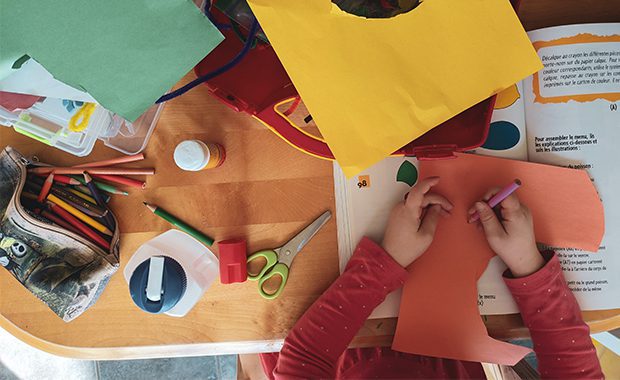GK consultant Noureen Ahmed examines the key aspects of the Department for Education’s Early Years Foundation Stage Framework consultation, and what it means for the early years sector.
Over the past few months, the topics of childcare and early years education have been at the forefront of conversations within the education sector. The range of measures introduced in the Spring Budget 2023, including the significant funding commitment toward childcare provisions does illustrate the Government’s ambition to improve the early years landscape. Overall, the attention that childcare and early years education have accumulated is encouraging and we do expect to see this continue going forward. Nevertheless, it is also important to acknowledge the number of issues the early years sector is currently facing.
The daunting cost of living crisis, which has further exacerbated issues facing working parents and families, alongside the rising cost of childcare, certainly doesn’t alleviate the situation. England is emerging as one of the most expensive countries in the world when it comes to the cost of childcare. This is evident from a recently published report which found that “a UK couple where one parent earns the average wage and the other earns two-thirds of the average wage spends 29% of their wages on full time childcare.”
Proposals outlined in the Spring Budget 2023 included the expansion of 30-hour childcare to working parents of all children over the age of nine months and additional funding for schools and local authorities to implement ‘wraparound care’. Concerns have arisen over the expectation that the plans aren’t expected to come into effect until 2024/25, although it is important to note that the delays are intended to ensure nurseries are given sufficient time to prepare for these changes.
The Department for Education (DfE) appears committed to understanding the range of issues facing and launched a consultation in May 2023 to examine and scrutinise the Early Years Foundation Stage Framework (EYFS). This is a mandatory framework for providers ensuring that children ‘learn, develop, and are kept healthy and safe.’ Key proposals outlined in the consultation include:
- Removing the requirement for Level 3 early educators to hold a Level 2 (GCSE or equivalent) maths qualifications, and instead apply this requirement to managers only.
- Introducing an ‘experience-based route’ so that otherwise suitable practitioners who don’t hold an approved Level 3 qualification have a path to gaining ‘approved status’ without having to do a new qualification.
- Changing the qualification requirements for ratios so that they would not apply outside of peak working hours.
The sector has been keen to stress the importance of delivering high quality early years education and care for all children; according to the DfE, the qualification changes are intended to do exactly that, as well as improving flexibility for providers and provide more opportunities for practitioners to join the workforce.
So what might this consultation mean for the sector?
Whilst it is encouraging to see the DfE propose improvements to the framework, it is also important for the Government to make sure it fully understands what exactly the sector is truly asking for. With a range of issues facing the sector, including recruitment issues, inflexibility regarding staff qualifications, and most recently, the Government’s proposal to relax staff-to-child ratios for two-year-olds in England from 1:4 to 1:5, there are concerns that this would impose added strain on providers, given their primary purpose is to provide high quality childcare education for all.
Nevertheless, the consultation, which recently came to a close, should have presented an opportunity for nurseries, childminders, providers, and parents to voice their views.
The sector should prepare for a number of changes, namely the plan to remove the requirement for level 3 educators to hold a level 2 maths qualification and changing the percentage of level 2 qualified staff required per ratio in an attempt to boost the workforce and make it easier for people to join the sector. If implemented, these changes would likely be welcomed by the sector as it creates more opportunities for those who have a passion in joining the sector but shy away because they are not currently equipped with the necessary qualifications.
Overall, it is positive to see a heightened focus on the sector, which is expected to continue ahead of the next General Election. The consultation clearly presents a valuable opportunity for the Government to demonstrate its commitment to valuing and protecting the Early Years staff while simultaneously ensuring that all children are provided with the support and care they rightfully deserve.
GK are experts in the education policy landscape, if you would like to hear more from our consultants get in touch with noureen@gkstrategy.com.






